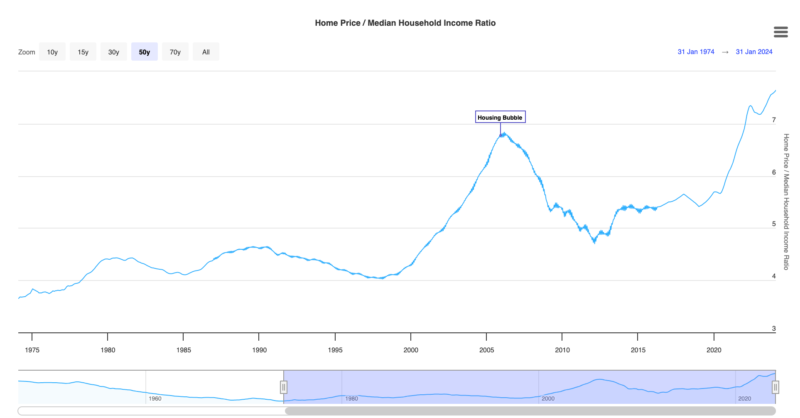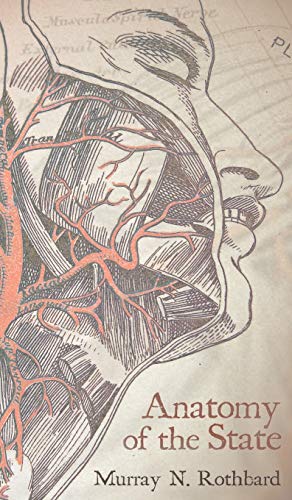Category Archive: 6b.) Mises.org
The Lesson of the Trump Conviction
Last week, Donald Trump was convicted of falsifying business records with the intent to commit, aid, or conceal another crime. The Manhattan jury found him guilty on all thirty-four counts.This entire case was always ridiculous. Trump was charged for labeling reimbursement checks to his lawyer as “legal expenses” after the lawyer made a (completely legal) payment to an adult film actress to get her to sign a nondisclosure agreement....
Read More »
Read More »
Debunking Robert Reich’s Debunking
“Additional units of a homogeneous good must go toward less important ends.” Is this an ethical claim? Does it fall under political science? Or is it an economic law?According to Robert Reich, economics, properly considered, is in a mush with politics and morality. He has started a new ten-week series debunking economic myths, and the first one is “Economics is Objective.” I wouldn’t say he is off to a good start.Reich asserts that economics ought...
Read More »
Read More »
No Honor Among Government Thieves: The Evil of Asset Forfeiture
The practice of law enforcement agencies in the United States seizing private property is one of the clearest examples of how much power the government has been permitted to gain. Although the idea of forcibly appropriating the assets of citizens as punishment for violation of the law has been practiced on the North American continent for hundreds of years, for a long time it was only used infrequently and was generally ignored by law...
Read More »
Read More »
Distinguishing Libertarian Philosophy from Political Strategy
Private property is the foundation of the libertarian society, and in Rothbardian theory, a libertarian society is one founded on absolute private property rights. In the libertarian society, all property is private property. Libertarianism is thus constructed on the principle of self-ownership: the libertarian society is a free society in which each individual is a self-owner. As Murray Rothbard explains in The Ethics of Liberty, “Obviously, in a...
Read More »
Read More »
Yellen Wants Price Inflation to Rise So the Feds Can Keep Spending
The long-term forecast for higher interest rates, according to Treasury Secretary Janet Yellen, makes it more difficult to control US borrowing needs, which emphasizes the significance of raising revenue in the forthcoming budget talks with Republican lawmakers. There is only one problem. She is wrong.According to the Congressional Budget Office (CBO) baseline, which does not assume a single year of recession and already counts with record tax...
Read More »
Read More »
Scott Galloway’s TED Talk Reveals a Basic Ignorance of Economics
Scott Galloway, a professor in marketing from New York University and a frequent guest on networks like the execrable CNBC, gave a recent TED talk titled How the US Is Destroying Young People’s Future.
Read More »
Read More »
Tucker Carlson’s Guests Keep Bringing up the Mises Institute
Tucker Carlson is apparently warming up to Austrian economics and the work of the Mises Institute. In 2019, when he was still on Fox News, he made a quick dig at Austrian economics, and he was critical of “libertarian economics” as recently as December of last year.But Austrian economics and the Mises Institute have come up in his interviews with three different guests over the past few months, and instead of being critical or dismissive, Carlson...
Read More »
Read More »
Milei’s Challenge to False Economists
In 1972, members of the newly created Libertarian Party wanted Murray Rothbard to be their candidate in the coming presidential run. During an interview, when asked about this possibility, Rothbard first had a long laugh. After laughing, he stated that he did not think that it was even the time to create a libertarian party, simply because there were not enough libertarians, but that if there was eventually a strong libertarian party, several...
Read More »
Read More »
Does Increasing the Money Supply also Increase Economic Growth?
Many economic commentators believe increasing the quantity of money can revive an economy. This is based on the view that with more money in their pockets, people will spend more and others follow suit, as they hold that money is a mere means of payments.Money, however, is not the means of payments but rather a medium of exchange. It only enables one producer to exchange his product for the product of another producer. According to Murray Rothbard,...
Read More »
Read More »
Would Ending the Fed Cause a Depression?
What is the Mises Institute?
The Mises Institute is a non-profit organization that exists to promote teaching and research in the Austrian School of economics, individual freedom, honest history, and international peace, in the tradition of Ludwig von Mises and Murray N. Rothbard. Non-political, non-partisan, and non-PC, we advocate a radical shift in the intellectual climate, away from statism and toward a private property...
Read More »
Read More »
Civilization Depends upon Economic Freedom
The BBC recently slapped a “trigger warning” on its popular 1969 series Civilisation, warning that viewers may deem the series objectionable as it presents Eurocentric perspectives. The series is now deemed to be “problematic” because it tells a “European story,” focusing on the Renaissance and the Enlightenment. This is criticized by academics—for example, the classicist Mary Beard—for excluding other cultures and also for excluding women while...
Read More »
Read More »
The Montaigne Fallacy
What is the Mises Institute?
The Mises Institute is a non-profit organization that exists to promote teaching and research in the Austrian School of economics, individual freedom, honest history, and international peace, in the tradition of Ludwig von Mises and Murray N. Rothbard. Non-political, non-partisan, and non-PC, we advocate a radical shift in the intellectual climate, away from statism and toward a private property...
Read More »
Read More »
The Trends of the Trade
Trade school enrollment is on the rise. Many trade schools have seen as much as a 19.3 percent rise in enrollment over the last several years. This is good news given the labor shortages in areas like construction and auto mechanics.Back in the late ’80s and early ’90s, when I was in high school, it was unthinkable to not go to college. In my working-class neighborhood, a college education was viewed as a way out of poverty. Jobs in construction,...
Read More »
Read More »
A Rothbardian Dissection of Javier Milei – Part II
Read part I here.Milei and the Chances of PrivatizationThough privatizations have not yet arrived, the state-owned airline is on the agenda. The company was renationalized in 2008, forcing taxpayers to prop up an airline that has been directly bailed out by the government since 2021. For true privatization, all regulation prohibiting competition and all taxation in the industry should be abolished—falling short of this, it should come with...
Read More »
Read More »
Overpopulation Reconsidered: A Decentralized Approach
Overpopulation has been a concern for a long time, sparking debates about humanity’s future, resource scarcity, and environmental degradation. The temptation to resort to centralized control measures is significant. However, a closer examination reveals two major problems with such an approach.The ethical problemThe violation of individual rights is the first issue. As Murray Rothbard explains in ‘The Ethics Of Liberty,’ individuals have an...
Read More »
Read More »
Why the Democrats are Throwing the Presidential Election
I heard a rumor the other day that Democrats are throwing the Presidential election. Party apparatchiks believe the stock market will crash, sinking the economy and they would rather have it all implode on Donald Trump’s watch, paving the way for having a Democrat in the White House from 2028 until eternity. This sort of conspiracy theory seemed spectacularly implausible until I read in the New York Times, that anti-Trump Republicans believe the...
Read More »
Read More »
Coyning US into War
How to Run Wars: A Confidential Playbook for the National Security Eliteby Christopher J. Coyne and Abigail R. HallIndependent Institute, 2024; xvii + 198 pp.This is an excellent book, but I should like to begin, characteristically, with a complaint. Christopher Coyne and Abigail Hall, who are both economists favorable to the free market, present an excellent criticism of America’s pursuit of global hegemony, ably showing the immense costs of this...
Read More »
Read More »
The Mises Institute’s Concern Trolls
There is no shortage of former hangers-on at the Mises Institute who now claim to have deep insights into the inner workings of the Institute and its staff. Among these people, one will often find a certain group of people who never miss an opportunity to tell you all about how tight they once were with the Institute staff, and how now they can no longer support the Institute because “it changed.” The latest writer that checks the usual boxes of...
Read More »
Read More »
Is Israeli Society as Sick as the Regime?
In teasing out right from wrong, discriminate we must between acts that are criminal only because The State has criminalized them (mala prohibita), as opposed to acts which are universally evil (malum in se). Israel’s sacking of Gaza is malum in se, universally evil. Gaza is clearly an easy case in ethics. It’s not as though the genocide underway in Gaza could ever be finessed or gussied up.Yet in Israel, no atrocity perpetrated by the IDF (Israel...
Read More »
Read More »
The West Needs Radical Political Change Towards Freedom
It should not have escaped the politically aware that the threats to freedom in Western societies are now unprecedented. This goes far beyond the interventionist pressures that over time have been slowly throttling most Western economies. The Western oligarchic elite are now dead set on implementing what one influential blogger described as “a society hermetically sealed against any form of rebellion, dissidence, or questioning of the ruling...
Read More »
Read More »






















